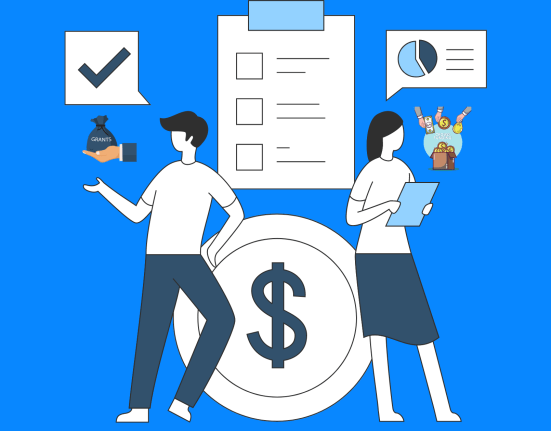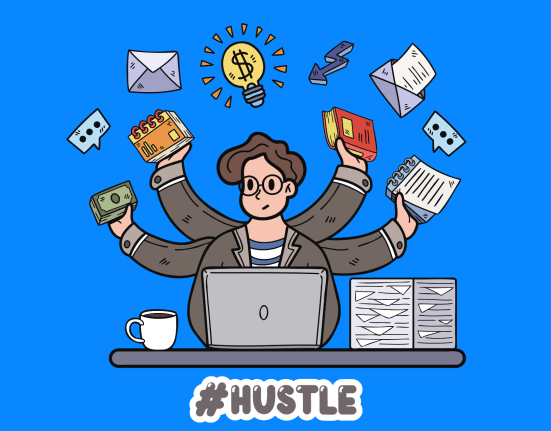Freelancing – it’s not all sunshine and rainbows. While it might seem like a tantalizing prospect for those seeking flexibility, autonomy, and creativity, there’s a darker side to this work arrangement. In fact, freelancing can be downright treacherous, taking a toll on one’s mental health and overall well-being.
In this piece, we’ll explore some of the most pressing issues facing freelancers today, including exploitation, burnout, and mental health problems. But don’t worry – we’re not all doom and gloom around here. We’ll also offer some actionable tips and resources to help you navigate these challenges and safeguard your freelancing mental health.
Exploitation: How Freelancers Are Underpaid & Overworked
Freelancers are the backbone of many industries, yet they are often exploited and undervalued by their clients. From low pay to unpaid work, freelancers face a multitude of challenges that keep them in a state of economic insecurity. According to a Payoneer survey, the average hourly rate for freelancers worldwide was a paltry $21 in 2021, which is below the minimum wage in many countries. Freelancers are not only underpaid, but they also have to bear the burden of administrative tasks such as marketing, networking, invoicing, and taxes, which are not compensated by clients.
The other side of the exploitation coin is overwork. Freelancers are often forced to work long hours, take on multiple projects, and meet tight deadlines to make ends meet. This can lead to physical and mental exhaustion, which can have serious consequences on both personal and professional life. A 2022 study by the Freelancers Union found that 72% of freelancers experience work-related stress, compared to 58% of traditional employees. 51% of freelancers work more than 40 hours per week, compared to 36% of traditional employees. 60% of freelancers reported having experienced an irregular income in the past year.
Freelancers are the ultimate hustle culture warriors, constantly chasing new projects to keep the cash flow going. It’s a vicious cycle that leaves little room for rest and relaxation.

Burnout: How Freelancers Lose Their Passion & Motivation
Burnout is the ultimate buzzkill. It’s like a cocktail of emotional, physical, and mental fatigue mixed with a healthy dose of chronic stress and overwork. And let me tell you; it’s not just your grandma’s condition anymore. Burnout can affect anyone who works in a demanding and stressful environment, but freelancers are particularly susceptible to it due to their lack of structure, support, and feedback.
When you’re a freelancer, you’re often expected to be a jack of all trades, and that can leave you feeling overwhelmed, underappreciated, isolated, and disconnected. According to a recent study by Razorpay, a whopping 42% of freelancers have experienced burnout at some point in their careers. That’s a staggering number, folks, and it’s not something to take lightly.
Mental Health: How Freelancing Affects Your Mood & Mindset
As a freelancer, the pressure to succeed can be overwhelming. You’re responsible for finding new clients, negotiating rates, managing deadlines, and delivering quality work. This constant juggling act can take a toll on your mental health, especially if you’re not equipped to handle the stress. It’s not uncommon for freelancers to experience feelings of anxiety, depression, or loneliness due to the lack of structure and social interaction that comes with working independently.
Additionally, the constant need to prove oneself and the fear of failure can lead to impostor syndrome and self-doubt, which can further exacerbate the mental health challenges that freelancers face. While freelancing can offer flexibility and autonomy, it’s important to prioritize your mental health and seek support when needed to prevent burnout and ensure long-term success.
How to Protect Your Mental Health as a Freelancer
As a freelancer, you need to take care of your mental health as much as you take care of your work. Here are some tips on how to do that:
- Set clear boundaries with your clients: Communicate your expectations, availability, rates and scope of work clearly and firmly. Don’t let clients take advantage of you or abuse your time and energy. Learn to say no to unreasonable demands or unprofitable projects.
- Manage your workload: Plan your schedule, prioritize your tasks, and track your time. Don’t take on more work than you can handle or deliver. Learn to delegate or outsource some tasks if possible.
- Take regular breaks: Give yourself some time to rest, relax, and recharge. Don’t work non-stop without taking care of your basic needs. Schedule some breaks throughout the day, and take some days off when you need them. Do something that makes you happy, such as reading, listening to music, meditating, or exercising.
- Seek social support: Don’t isolate yourself from others. Connect with your friends, family, and fellow freelancers. Share your experiences, challenges, and achievements. Seek advice, feedback, and encouragement. Join online or offline communities of freelancers who can relate to your situation and offer support and resources.
- Get professional help: If you are struggling with your mental health, don’t hesitate to seek professional help. You can talk to a therapist, counselor, or coach who can help you cope with your emotions, thoughts, and behaviors. You can also consult a psychiatrist or a psychiatric nurse practitioner who can prescribe medication if needed. Many online platforms offer affordable and accessible mental health services for freelancers.
- Practice self-care: Self-care is not selfish or indulgent. It is essential for your mental health and well-being. Self-care means taking care of your physical, emotional, mental, and spiritual needs. It means doing things that nourish your body, mind, and soul. Some examples of self-care activities are eating well, sleeping well, exercising regularly, meditating, journaling, expressing gratitude, setting goals, learning new skills, and having fun.

Conclusion
Freelancing can be a rewarding and fulfilling career choice, but it can also pose many challenges and risks for your mental health. Freelancers may face exploitation, burnout, and mental health issues that can affect their work and life quality.
Therefore, it is important to take care of your mental health as a freelancer by setting clear boundaries with your clients, managing your workload, taking regular breaks, seeking social support, getting professional help, and practicing self-care. By doing so, you can enjoy the benefits of freelancing without compromising your well-being.








![Top 5 Personal Branding Examples [2024]](https://fueled.community/wp-content/uploads/2024/05/Source-Proideators.com-9-551x431.png)


Leave feedback about this